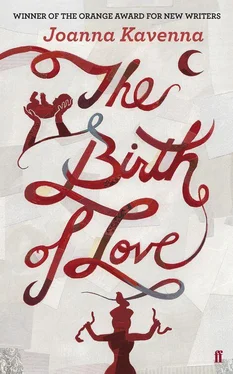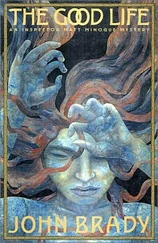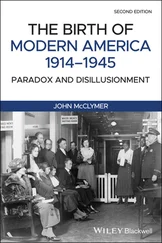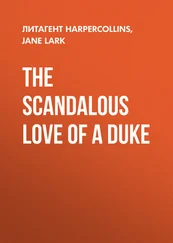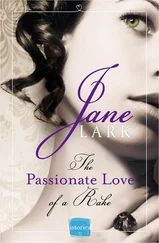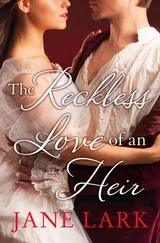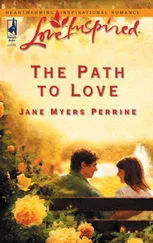*
‘Here you are, sweetie,’ she said, placing the cup in Calumn’s urgent outstretched hands. ‘More water.’
‘Wahatar.’
‘Yes, very good. Water.’
*
‘… ever more distant from original events …’ said the radio, but Brigid had lost track of the debate. She breathed out slowly. Briefly she had been absurd, she had been frightened, and now she had returned to the morning, her son, the water she was pouring into his cup. It was just this fatigue; it made her nearly hysterical. She was forty-two and there wasn’t much to be done if you were tired at forty-two and about to birth another child. How much more exhausted would she become? She couldn’t quite imagine it, the period after the birth. There would be the baby, a tiny thing, with its simple needs — milk, love, a warm place to sleep. After a few months she would no longer be able to imagine that she had grown the child within her; it would seem so vital and present, as if it had always been in the world. When she thought like that, she thrilled to a sense of anticipation. She was simply glad, at those moments, but that was before her thoughts strayed into plain logistics: how would she carry her babies, feed them, clothe them, wash them? How would she tend to their basic needs, when she found the needs of one so entirely engrossing? She could fill a day with Calumn’s needs; where would she fit those of another child? She could oscillate from apprehension to excitement in a minute. Now, she was thinking, she would manage. There was no alternative, and besides there were people who managed with four children, five children. They didn’t die of exhaustion. No one ever died of sleepless nights. They might lose themselves for a time, enter a shadow world of bewilderment, but they didn’t die. So with a bright smile she said to Calumn, ‘Are we finished? Have we finished second brek? All done with your second brek? Good good. Can I take your bowl and spoon away?’
‘Dah.’
‘That’s right, sweetie. I’m taking your bowl and spoon. And now I’m putting them in the sink. There’s the sink, that’s right’ — as Calumn pointed at the sink.
*
She cleared up some of the mess though not much of it, just enough to keep things reasonable and not entirely sordid, and then she wiped Calumn’s mouth, though he bucked against her.
‘There we are,’ she said, stroking his hair. ‘All clean. Good boy.’
And Calumn turned to her and with his arms outstretched, kissed her wetly on the chin.
‘Thank you, sweetie,’ she said, kissing him back. ‘How lovely, a kiss for Mummy.’
*
‘… let’s turn to the next …’ said the radio, and then Brigid felt a deep pain within her, harsh now, quite searching, asking her if she was ready to go through the whole thing again. The pain stabbed at her, severely and in this questioning way, and then it receded. A contraction, if ever I felt one, thought Brigid, but still she was superstitious and tried to dismiss the thought. But it must be. She was contemplating the real possibility that this was labour when she heard the doorbell. She said to Calumn, ‘Come on sweetie, let’s go and see who’s at the door.’ She wondered if it was Stephanie, arriving early; Stephanie who had gone through five years of IVF before she conceived. A walking miracle, she called herself. More likely, it was her mother already. Hastening to her, with something to say. So Brigid lifted her son down from his chair and set him on the floor. He grabbed at her trousers, wanting to come up again, but she kissed him and tousled his hair. ‘Come on sweetie, have to hurry. It’s the doorbell.’ He raised a hand and put it into hers.
*
Brigid opened the door and greeted her mother, who was looking particularly small and determined, her hair newly dyed, her skin creamed with some expensive unguent, her jewellery sparkling and everything about her expressing a firm resolve that try as the universe might to upset her she would prevail. She was carrying a lot of plates and bowls, in plastic bags, each of them neatly capped with a piece of tinfoil. These she thrust into Brigid’s hands.
‘Several meals,’ she said. ‘I thought you would need them.’
‘Thanks Mum, that’s really amazingly brilliant of you,’ said Brigid, brightly, taking care to smile. She took them into the kitchen and stacked everything carefully in the fridge. A procession followed along, her mother and her son. ‘Hello darling,’ her mother was saying to Calumn, kissing him and rubbing his fat hands. ‘Darling boy, aren’t you looking nice in your red trousers. What lovely red trousers! Come and kiss your old grandma …’ Calumn burbled back, flung his arms around her neck. No idea at all, thought Brigid. He has no idea at all. Assumes adults are consistent, uniformly kind. One day he would realise — or would he? — that there were certain ambiguities, that his grandmother was a complicated woman, giving with one hand, taking with the other, that his mother was herself a wary daughter, and that Calumn was a battleground. Across the battleground of this small boy they mounted their respective campaigns, attacked and retreated, or suffered an uneasy truce. Calumn never noticed. He only saw a smiling woman who plainly loved him. It was his simplicity perhaps, it helped others to become simple too.
*
‘I made you and your mummy lunch, yes I did … I made you and your mummy a lovely yummy lunch,’ her mother was saying to Calumn. ‘A delicious lunch, oh we’ll have a lovely lunch.’
Brigid made more tea, while her mother settled herself into a chair and said, ‘Oh, what a funny little boy you are!’ and Calumn clapped his hands and said, ‘Gan gang gan gan.’
‘Gran, gran,’ said Brigid’s mother. ‘That’s what I am yes! I’m your gran, yes I am.’
‘Hilabsnroortshammablapa,’ said Calumn, turning circles.
‘What’s all that? What on earth is all that?’ laughed Brigid’s mother. ‘Good Lord. What an amazing word, not a pause for breath at all.’
‘Mewirddeeteo.’
‘Absolutely, dear little boy. Absolutely, I agree entirely. Thank you dear,’ said Brigid’s mother, as Brigid put the tea on the table. ‘Dreadful weather isn’t it, all this rain? They say it’s global warming on the news. Hotter and wetter summers. It’s like a rainy season, really. I find it so sad. So sad that poor Calumn will be growing up with these horrible wet summers. Poor little boy. When I was a child the summers were so beautiful and ceaselessly hot. Bright blue skies, little wisps of cloud. It was the same for you too. I remember spending every day with you in the garden, John too after he was born. Endless blue days. And the evenings were balmy and long. Then you had a proper cold autumn. Even in October you were cold, and you knew that winter was really on its way. But it was a proper year with seasons. I like seasons. Don’t we like seasons, Calumn? We like a nice hot summer, don’t we? Yes we do!’
‘Dah,’ said Calumn, smiling. Then he grabbed a saucepan — left on the floor for his entertainment — and smashed it on the tiles.
‘Oh, that’s a bit loud,’ said Brigid’s mother. ‘Really too loud, Calumn.’
‘Rowd rowd,’ said Calumn, and then he wailed when the pan was taken away from him. ‘Have some more apple,’ said Brigid, trying to bribe him. ‘Yummy apple, would you like some, sweetie?’
‘Nnnnnear,’ said Calumn, with his eyes shut.
‘OK, sweetie, don’t have any apple. But let’s be a bit quieter. Hush hush, a bit quieter, please.’
‘AHHHHGANNNGANNNNNGANNN,’ said Calumn, in his loudest voice.
‘It is bad,’ said Brigid, trying to speak over him, while her mother smiled as if to say that she understood, that it was impossible to be a perfect parent, she understood that Brigid was doomed to fail. ‘It is bad about global warming. Calumn, do you want a banana instead?’
Читать дальше
